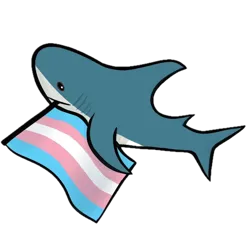

Since middle school and throughout high school and college I got progressively more and more depressed due to repressed gender dysphoria, and starting HRT has almost immediately started reversing that. I had always been outspoken about how gender roles were stupid and never cared about using “women’s” things (like I shared my mom’s hair products and stuff), but none of that changed the fact that I was extremely uncomfortable in my body, and being perceived as a man was something to avoid as much as possible. If people made jokes like “that’s how you know you aren’t a woman haha” I would always fight back against that, but being compared to women felt like more of a compliment.
Plus imo anything a trans person does that could “reaffirm stereotypes” wouldn’t do that more than any cis person doing it. I’ve heard similar things from some cis feminists, where they felt that if they did something stereotypically “girly” it would be hypocritical of them, until realizing that the entire point was that you should be able to do those things if it makes you happy. Avoiding stereotypes can reinforce them just as much as doing them, since then it makes the people claiming the stereotypes as universally true seem like they have a view worth changing yourself for.


I mean based on Mary Magdalene, I’d assume feet.